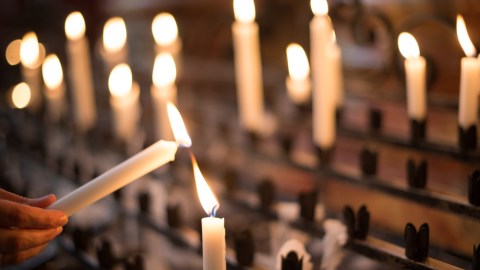Is There Such a Thing as Too Much Prayer?

What’s the Latest Development?
Studies have repeatedly shown that people who set aside time to pray are generally healthier and recover from illness more quickly than those who don’t. Even atheists who pray experience an uptick in health, according to Stanford anthropology professor T.M. Luhrmann. “But it’s also true that while [Luhrmann] was doing research on evangelical spirituality, there were times when people got so engrossed with prayer that they seemed almost addicted — so compelled to pray that they could not stop.” Some of the faithful referred to their behavior as “puking” prayer, making Luhrmann wonder whether there was such a thing as too much prayer.
What’s the Big Idea?
According to sociological research on the effects of too much prayer, the condition resembles that of becoming addicted to video games. In both cases, individuals are able to imagine alternate realities which they then inhabit, instead of living in the real world. “When people use prayer to enhance their real-word selves, they feel good. When it disconnects them from the everyday, they feel bad. The imagination is a double-edged sword. …[T]he capacity to make something real is not the same as the capacity to make it good or useful. That’s a caveat to bear in mind for any kind of prayerful life.”
Photo credit: Shutterstock.com





